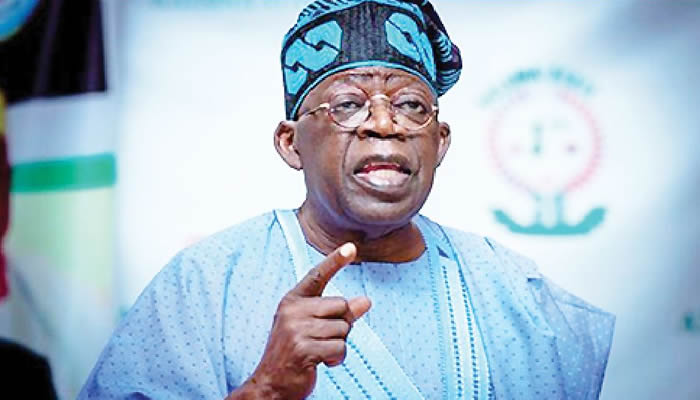He called on global partners to scale up concessional finance, knowledge sharing, and technology transfer to accelerate not just Nigeria’s transition, but Africa’s contribution to a safer, more sustainable world.
He said, “We aim to unlock at least $7 to $10 billion in grants and concessional finance from global partners, while promoting technology transfer, regional energy integration, and green entrepreneurship to drive inclusive growth. For Nigeria, a country acutely vulnerable to climate impacts, climate action is not a choice; it is an existential necessity.
“To mobilise resources, we have undertaken significant domestic reforms. We have simplified and modernised our tax laws to ease compliance, removed unproductive fossil fuel subsidies, reduced burdens on households and businesses, and enhanced revenue efficiency. At the same time, we are strengthening our business environment through legislation and policies that improve the ease of doing business. This is to attract private capital and expand opportunities for investment in clean energy and sustainable infrastructure.”
Tinubu said that in March 2025, Nigeria launched the Nigeria Carbon Market Activation Policy, establishing a robust framework for high-integrity emissions reductions.
He added, “This positions Nigeria as a credible hub for Article 6, Voluntary, and Compliance carbon markets. Through this mechanism, our target is to mobilise up to $2.5 billion by 2030 in high-quality credits and related investments.
“We are under no illusion: no country can tackle the climate crisis alone. Like other developing nations, Nigeria requires significant support to implement effective mitigation and adaptation strategies. We therefore call on International Financial Institutions, notably the World Bank, IMF, and African Development Bank, to scale up financing for climate action. Likewise, developed countries must honour their climate finance commitments, including the $100 billion annually pledged under the Paris Agreement.”
He said that as a demonstration of its unwavering commitment, Nigeria had updated its Nationally Determined Contributions (NDC 3.0), in line with UNFCCC guidance.
Tinubu continued, “This enhanced NDC reflects greater ambition, integrating mitigation and adaptation measures to safeguard our people, protect ecosystems, and accelerate inclusive growth. It was formally submitted to the UNFCCC Secretariat on September 21. This NDC 3.0 departs from the business-as-usual approach to an absolute economy-wide emission reduction, our highest ambition level to date.”
The president said the targets were better defined and will be supported by an investment plan to accelerate implementation.
Tinubu added, “Nigeria’s NDC 3.0 commits to significantly increasing mitigation and adaptation ambitions with clearer targets compared to NDC 2.0. Within the LULUCF sector, Nigeria aims to lower the deforestation rate by 60 percent, which offers a substantial mitigation potential of 304.8 MtCO2eq, while also pursuing a mitigation potential of 34.4 MtCO2eq by increasing forest area through reforestation and afforestation.”
He said Nigeria was increasing the adoption and use of cleaner energy systems, especially in manufacturing and industries.
“We are increasing captive generation capacity using cleaner fuels by installing seven GW, 50 percent renewable and 50 percent natural gas, for a practical Energy Mix Plan on our journey to net-zero by 2060; electrifying key sectors such as public transport and industry. We are also implementing national energy efficiency standards to deliver absolute reductions in energy intensity by 2030.”
The president said that for the first time, “Health” and “Action for Climate Empowerment” have been included as priority sectors in Nigeria’s NDC 3.0, demonstrating its commitment to economy-wide climate governance.
He added that Nigeria was scaling climate-smart agriculture to reach five million smallholder farms by 2030, with a view to increasing yields by 20–30 percent and expanding drought-resistant crops.
“We are building resilient infrastructure, integrating early warning systems, climate-informed urban planning, and resilient housing to reduce climate-related damages by 50 percent. We plan to restore mangroves, forests, and wetlands to enhance carbon sinks by 200 metric tonnes of Carbon Dioxide Equivalent (MTCO2e) cumulatively by 2030, while protecting biodiversity and livelihoods. Nigeria aims to lower the deforestation rate by 60 percent, which offers a substantial mitigation potential of 304.8 MtCO2eq, while also pursuing a mitigation potential of 34.4 MtCO2eq by increasing forest area through reforestation and afforestation,” Tinubu added.
He said that institutionally, Nigeria had established the National Council on Climate Change (NCCC), supported by a cross-ministerial Secretariat, to ensure coherence, accountability, and measurable results.
He reaffirmed that for Nigeria, climate action is not a trade-off between growth and sustainability; it is the pathway to sustainable growth, innovation, security, and shared prosperity.
Tinubu assured that Nigeria was ready to work with all partners, lead where necessary, and deliver because the time for climate action is now.
punch.ng
FOLLOW US ON:
FACEBOOK
TWITTER
PINTEREST
TIKTOK
YOUTUBE
LINKEDIN
TUMBLR
INSTAGRAM


























